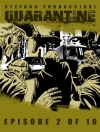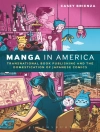‘This fierce little novel tells the story of a political confrontation in a remote village in Argentina. Obscure differences between Peronist supporters and leaders escalate in a crescendo of violence to the final massacre.
The characters, who with each event evolve from the comic and grotesque to the tragic, are observed by the author with a cool, dispassionate gaze, though in end we are left with a feeling of bitter pity.
This is because, in spite of all their moral and mental wretchedness, in spite of the emptiness of their ambitions and fanaticism, they themselves are poor victims.’
Italo Calvino
A Funny Dirty Little War marries the Keystone Kops and Kafka.
Table des matières
Acclaim for A FUNNY DIRTY LITTLE WAR
PART ONE
PART TWO
About the Author
About the Translator
About Readers International
A propos de l’auteur
NICK CAISTOR is a British journalist and translator who has worked for the BBC Latin American Service, for Index on Censorship magazine and for other London-based international organisations. After graduate studies in French and Spanish, including an M.A. in Spanish language and literature from London University, he lived for two years in Argentina, and he has continued travelling extensively in the region. He edited Nunca Más, the famous report on political killings and disappearances in Argentina, and also The Faber Book of Latin American Short Stories. In 1984 his highly acclaimed translation of To Bury Our Fathers from Readers International introduced Sergio Ramírez to English-language audiences for the first time, and his translation of Ramírez’ Stories also was published by Readers International (1987). In 1986 his translation of Osvaldo Soriano’s A Funny Dirty Little War from Readers International introduced this acclaimed writer — the best-selling writer in Argentina at the time — to English-language audiences. Winter Quarters, the sequel to A Funny Dirty Little War, was translated by Nick Caistor and published by Readers International in 1990. Nick Caistor’s other translations include a second novel Castigo Divino by Sergio Ramírez, poems by Claribel Alegría and other El Salvadorean and Nicaraguan poets, stories by Julio Cortázar and Haroldo Conti and the novel The Shipyard by Uruguayan Juan Carlos Onetti.












